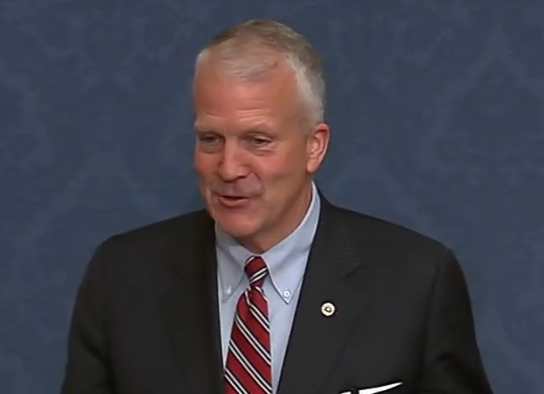WASHINGTON, D.C.— Senator Lisa Murkowski on Wednesday spoke on the Senate floor with her colleague Senator Heidi Heitkamp as they stressed the need for the bipartisan legislation they introduced hours earlier: the Alyce Spotted Bear and Walter Soboleff Commission on Native Children.
An emotional moment in Murkowski’s floor speech came when she shared a story from this past weekend’s Alaska Federation of Natives convention:
“I just came from the Alaska Federation of Natives Convention. It’s the largest gathering of natives in the country. They come from all corners of the state. It’s really like a family reunion. It’s usually a very upbeat, very happy occasion where people come together for a great deal of sharing.
“This year, there was sharing on a personal side that perhaps we have not witnessed before. Much of the sharing came from the children, and rather than stories shared of happiness and opportunities for the future, the sharing was driven by a feeling of not helplessness, because if you’re helpless, you won’t speak up, but a feeling that we can no longer remain silent, that the instances of domestic violence in the home, of the child sexual assault in the home, of the alcoholism and the drug abuse that brings about attempted suicide in the home caused a group of 4-H kids from Tanana, Alaska to come together to stand in front of an audience of 3,000-plus people and say we’ve had enough. We have to speak out. Even though we have been told don’t talk about this, don’t talk about this because it might shame your family, these children had the courage to step forward and say this is not right. We are taught to respect our elders, but when our elders don’t respect us, we are going to speak out.
“Their courage in front of this huge gathering was amazing. And it’s not unlike the story that my colleague from North Dakota has just said. When that young girl looked out the window and said who — who will come and take care of me? Who is waiting for me? These children from Tanana were saying we are not going to be quiet.
“It ought to be us. It ought to be the grown-ups that are saying ‘Let’s take charge of this. Let’s turn these horrible statistics around. Let’s make every day a better day for our children.’ Those kids are the real heroes. So, Mr. President, when I come together with my colleague in an effort like this – and I’m with you – oftentimes we say what do commissions do? Well, maybe, this starts to give some of these young people hope. Whether you’re on the reservations of North Dakota or you’re in Tanana, Alaska. Maybe there is hope that the grown-ups out there are listening and can work with them. We are trying to look at this holistically, through the education system, the health care system and through the justice system. And I am really quite pleased to be able to work with my colleague on this initiative. I don’t think that there is anything more important that we can be doing for our young people than to offer them a ray of hope.”




